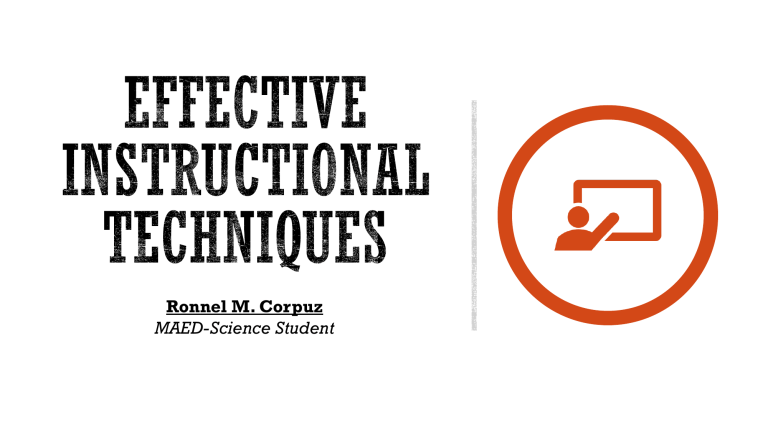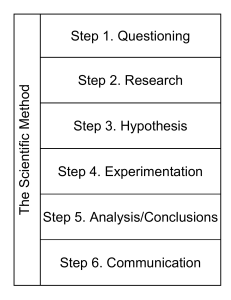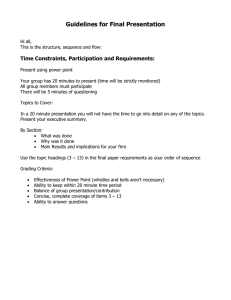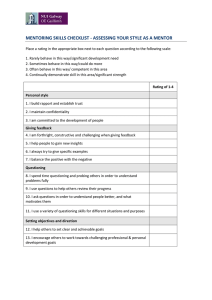Effective Instructional Techniques: Motivation & Questioning
advertisement

Ronnel M. Corpuz MAED-Science Student Motivation Questioning and Reacting Techniques Homework WHY IS MOTIVATION IN EDUCATION IMPORTANT? • help us direct the attention toward tasks that need to be done, • allow learner to do their tasks in shorter periods of time as well as maintain attention during a longer time, • minimize distractions and resist them better, • affects how much information they retain and store, • influence the perception of how easy or difficult tasks can appear. Theories of Motivation Attribution Self-Efficacy SelfDetermination and Regulation Choice Goal Locus ( Internal vs External) Stability (Stable vs Unstable) Controllability (Controllable vs Uncontrollable Self efficacy is the belief that one has SELF EFFICACY THEORY the necessary capabilities to perform a task, fulfil role expectations or meet a challenging situation successfully. When your student believe that they have the ability to perform learning activities successfully, they are more likely to be intrinsically motivated to do such learning activities. • Make sure students master basic skills SELF EFFICACY ENHANCING STRATEGIES: • Help them make noticeable progress on difficult tasks • Communicate confidence in students’ abilities through words and actions • Expose them to successful peers High Self-Efficacy Low Self-Efficacy Task Orientation Accept challenging tasks Avoid challenging tasks Effort Expend high effort when faced with challenging task Expand low effort when faced with challenging tasks Persistence Persist when goals aren’t initially reached Give up when goals aren’t initially reached Beliefs Believe they will succeed Control stress and anxiety when goals aren’t met. Believe they’re in control of their environment Focus on feelings of incompetence Experience anxiety and depression when goals aren’t met. Believe they’re not in control of their environment Strategy Use Discard unproductive strategies Persist with unproductive strategies Performance Perform higher than low efficacy students of equal ability Perform lower than high-efficacy students of equal ability CHOICE THEORY The choice theory is a biological theory that suggests that we are born with specific needs that we are genetically instructed to satisfy. All of our behavior represent our best attempt at any moment to satisfy our basic needs or genetic instructions. Learning goal is a “desire to acquire additional knowledge or master new skills”. GOAL THEORY Performance goal is a “desire to look good and receive favorable judgments from others or else look bad and receive unfavorable judgments”. 1. Class and Curriculum Structure 2. Teacher Behavior and Personality 3. Teaching Methods 4. Parental Habits and Involvement 5. Family Issues and Instability 6. Peer Relationships 7. Learning Environment 8. Assessment Concepts on Questions 5.2 QUESTIONING AND REACTING TECHNIQUES Questions are means to get response from students delivered through oral communication. Through this verbal tools, the students are driven to think and respond to whatever questions are given to them. Questions can be distinguished from a statement through examining its grammar. The interrogative from is an obvious signal of recognizing a questions. The teacher’s intonation ang how he/she emphasizes the word could facilitate the students’ detection that a questions is being raised. Assessing Cognition and Mastery of the Subject Matter Establish the Accuracy of Facts, Ideas and Events For Comprehension Evaluation Develop Creativity Among the Learners Motivate the Learners Interpretive Question Inference Question Predictive Question Transfer Question Metacognitive Question QUESTIONING TECHNIQUES Write the question in black and white. Set standards of behavior in the questioning period. Questions should be distributed to all members of the class. Prepare the students before asking questions Avoid impertinent and ridiculous questions. Provision for wait time must be observed. Refrain from ignoring incorrect answers and take time out to react to every response. Settle for questions that are clear, concise and short enough for easy retention of the students. Project a relaxed and non-threatening appearance when questioning. Motivate student nit to give up if they encounter difficult questions. PURPOSE OF HOMEWORK 5.3 HOMEWORK • PRE-LEARNING • CHECKING OFF UNDERSTANDING • PRACTICE • PROCESSING Alleviate students’ burden of recording homework Types of homework should vary GENERAL PRINCIPLES IN GIVING HOMEWORK The level of difficulty of homework should reflect students’ learning stages, objective, abilities, needs and life experiences The amount of homework should be adapted according to students’ abilities Give specific, simple, concrete and comprehensible instructions and exemplars Schools should have reasonable expectations for students Schools should maintain regular contact with parents


